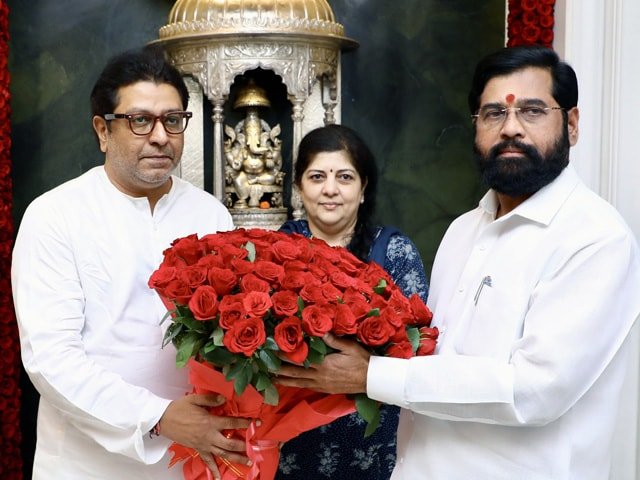The Chief Minister of Maharashtra, Eknath Shinde, paid a visit to the leader of the Maharashtra Navnirman Sena (MNS), Raj Thackeray, at his residence after Thackeray criticized the government’s spending of INR 1,700 crore on the beautification of Mumbai. In the same rally, Thackeray accused his cousin Uddhav Thackeray of causing the split in the Shiv Sena and blamed him for the exit of many Shiv Sena leaders, including the Chief Minister and 39 MLAs who supported him, after Uddhav Thackeray allied with the Congress and the NCP to form a new government. In another recent rally, Thackeray intensified his “Hindutva” pitch by stating that he would renew his campaign to remove loudspeakers from mosques if the state government failed to take any action on the matter. He also demanded the withdrawal of nearly 17,000 cases slapped on his party workers last year when they launched protests seeking the removal of loudspeakers from mosques.
Raj Thackeray’s comments about renewing his campaign to pull down loudspeakers from mosques and demanding the withdrawal of cases against his party workers are highly controversial and potentially divisive. Such statements could lead to increased tension between different communities in Maharashtra, and may also have wider implications for communal harmony in India.
Moreover, Thackeray’s criticism of Uddhav Thackeray and the Shiv Sena could exacerbate existing political tensions within Maharashtra. The Shiv Sena is a key ally of the ruling party in the state, and any criticism of its leadership could further strain the relationship between the two parties. It is important for political leaders to exercise caution and restraint when making statements that could potentially inflame communal or political tensions. Instead, they should focus on promoting unity, harmony, and constructive dialogue in order to address the challenges facing their communities and the country as a whole.
